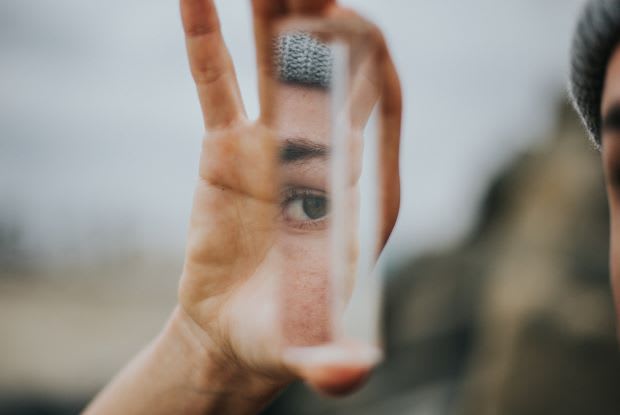Table of Contents
III. Understanding Macular Degeneration
a. Symptoms of Macular Degeneration
The eye is a small organ, but many parts of the eye must work together to ensure clear vision. Because it is a complex part of the body, several disorders may affect the eye and cause complications.
Glaucoma, cataracts, macular degeneration, and eye allergies are common conditions that can occur throughout a person’s life. Depending on your disorder, you may be prescribed Azopt (brinzolamide) eye drops for glaucoma, Restasis for dry eye, and Lotemax (loteprednol) eye drops for itchy and watery eyes. Before these disorders can be explained, the anatomy of the eye is necessary to understand. [1] Read on to learn more.
How does the Eye Function?
The eyes are protected by the eye socket and allow light to enter the clear layer of the eye (cornea). This part of the eye is shaped like a dome and bends to help the eye focus. The pupil is located in the center of the eye, surrounded by the colored section (the iris).
The lens then works together with the cornea to focus light on the retina. This light-sensitive layer of the tissue at the back of the eye turns the light into electrical signals. From the retina, electrical signals travel through the optic nerve to the brain. From there, the brain turns those signals into the images that we see. [2] Eye disorders occur when the eye lacks the proper tears for lubrication, the lens becomes cloudy, or the pressure behind the eye begins to affect vision. This type of eye disorder occurs when the optic nerve becomes damaged. The optic nerve is essential in processing the images we see, and damage occurs when the pressure in the eye pushes against the nerve. Glaucoma is one of the leading causes of blindness, especially in adults over 60 years old. Glaucoma can be a dangerous condition because it often occurs without any symptoms. Many do not realize that they are experiencing glaucoma until it is in advanced stages. Once vision is lost from glaucoma it cannot be recovered, so early diagnosis is crucial. [3] If your glaucoma is not too advanced, you may be prescribed Azopt eye drops to reduce eye pressure. This medication is a carbonic anhydrase inhibitor that decreases fluid in the eye, reducing pressure. The symptoms of glaucoma depend on the type you are experiencing. Symptoms may vary depending on the stage of your glaucoma. The types include: Open-angle glaucoma: This is the most common type, occurring in 9 out of 10 people with glaucoma. Pressure builds up in the eye when fluid cannot drain fast enough, putting pressure on the optic nerve. Over time, this may cause: Angle-closure glaucoma: This type is a medical emergency that your doctor should treat immediately. The outer edge of the iris blocks fluid from draining out of the eye. The built-up fluid causes an increase in eye pressure and may cause blindness in less than a few days if it is not treated quickly. Symptoms include: Like many eye disorders, macular degeneration typically occurs with age. Because of this, doctors often refer to this condition as age-related macular degeneration. Like glaucoma and cataracts, this condition occurs slowly and causes blurry vision over time. This condition affects the macula, which is the small central area of the retina that maintains our vision. There are two forms of macular degeneration: dry and wet. The dry form causes yellow deposits in the macular, which may dim and distort the vision. It leads the macula to get thinner and die eventually. You may lose central vision over time if you have dry macular degeneration. Wet form occurs when blood vessels grow underneath the macular, leaking fluid and blood into the retina. You may be prescribed Lotemax eye drops if you undergo surgery to aid in your macular degeneration. Laser surgery is commonly used for wet macular degeneration to destroy actively growing blood vessels in the eye. Lotemox eye drops are used after surgery to prevent eye inflammation. [5] Noticeable signs of macular degeneration are often few and far between in the early stages. Your eye doctor will test for macular degeneration at your early eye exams and hopefully identify this condition before it becomes severe. Common symptoms of macular degeneration include: Everyone experiences red and itchy eyes throughout their lives. The eyes are very sensitive to your environment, and allergies may cause several unpleasant symptoms. Allergies occur when the body overreacts to an outside substance. This leads the body to create antibodies and causes the eyes to release histamines. Histamines cause itchy and watery eyes and these symptoms may also affect the nose. Seasonal allergies occur at certain times a year when plants are blooming and releasing pollen into the air. Perennial allergies occur year-round and involve allergies to pet dander, perfumes, smoke, air pollution, and certain medicines. [6] Eye discomfort is a big problem for those with allergies, so many medicated eye drops have been created to assist in symptoms. Patanol (olopatadine) and Zaditor are two common eye drops used to prevent and treat itchy and red eyes caused by allergies. These drops block the function of histamines, reducing the severity of the allergic reaction. Restasis (cyclosporine ophthalmic) drops can also be used if you experience frequent dry eye during the year. Talk to your doctor to discuss the right eye drops for your condition. The content in this article is intended for informational purposes only. This website does not provide medical advice. In all circumstances, you should always seek the advice of your physician and/or other qualified health professionals(s) for drug, medical condition, or treatment advice. The content provided on this website is not a substitute for professional medical advice, diagnosis, or treatment.
What is Glaucoma?
a. Glaucoma Symptoms

Understanding Macular Degeneration
a. Symptoms of Macular Degeneration

Eye Allergies
